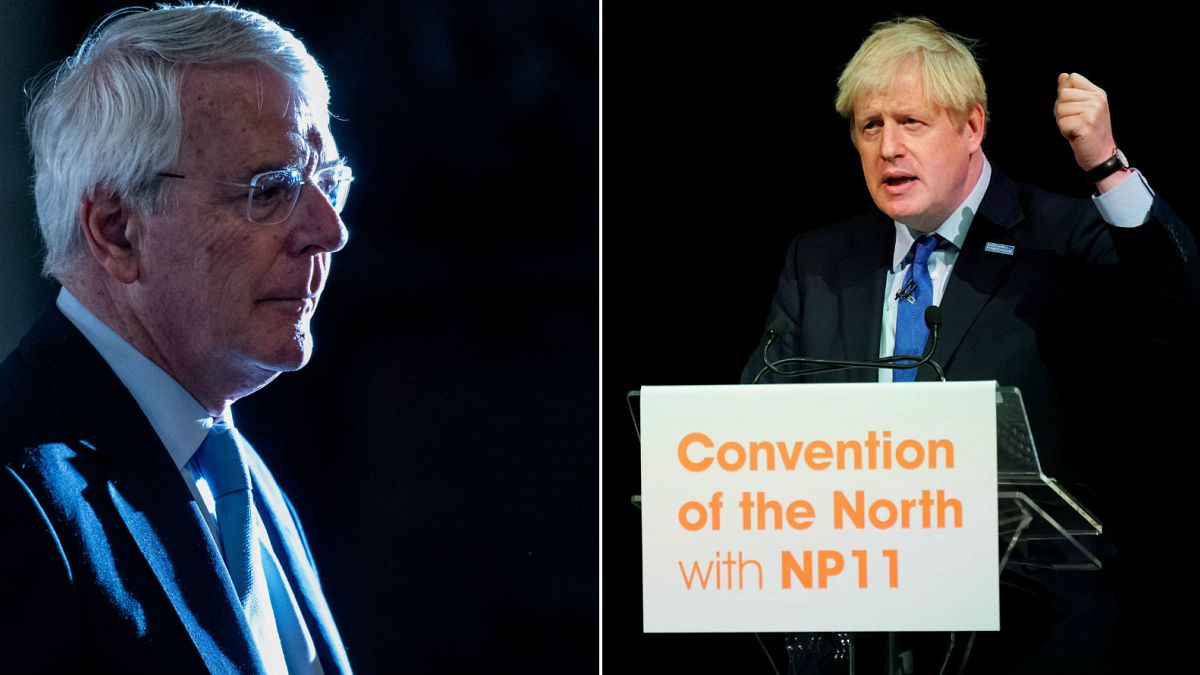Ex-British PM John Major, perhaps, is best prepared to understand what Boris Johnson is currently going through having himself battled against his lawmakers over the European Union when at the helm of the country.
Former national leaders traditionally avoid commenting on hotly contested domestic issues once out of power.
But Brexit, and the battle over whether Prime Minister Boris Johnson's proroguing — or suspension — of Parliament is lawful has, unusually, pitted the current tenant of 10 Downing Street against former resident John Major.
Even more unusual, both are Conservatives.
Major, 76, announced on Friday that he would seek to petition the UK's Supreme Court to join the case against the government brought forward by investment manager Gina Miller and backed by opposition parties.
He is scheduled to address the court on Thursday.
READ MORE: Parliament suspension is not a matter for courts, government lawyer says
Divided Conservatives
Major, perhaps, is best prepared to understand what Boris Johnson is currently going through having himself battled against his lawmakers over the European Union when at the helm of the country.
The ruling Conservative Party has been bitterly divided over the country's exit from the EU. Theresa May — Johnson's immediate predecessor — was eventually felled by her own lawmakers after she failed to get the Brexiteer side of her benches to agree to the backstop arrangement for Northern Ireland.
Johnson, meanwhile, was severely weakened by the anti-No Deal faction within the party. Twenty-one MPs rebelled against him to fast-track a cross-party bill to help prevent the country from crashing out of the bloc without an agreement on October 31.
Despite having already lost his working majority, Johnson expelled them from the party and then lost another gamble when his motions to trigger a general election before the Brexit deadline — which might have allowed him to ignore the legislation — were voted down.
Party like it's 1992
Twenty-seven years ago, John Major was in power and engaged in an intense political battle with lawmakers over the Maastricht Treaty.
The treaty aimed to further European integration with the creation of a single market for goods and services as well as free movement for labour and would see the European Community (EC) become the European Union.
Major, who had taken part in the negotiations, backed it, putting him in opposition with eurosceptic MPs led by none other than Lord William Rees-Mogg, father of arch Brexiteer and Johnson ally Jacob Rees-Mogg.
A legal challenge brought forward against the Major government by Rees-Mogg and hundreds of amendments tabled by eurosceptic lawmakers delayed the bill's progress through Parliament for a year.
After suffering a parliamentary defeat over the treaty on July 22 1993, Major stood up from the benches and announced in a moment of high political drama that he was tabling a confidence vote in the government for the following day, which would act as a vote on the treaty.
Conservative rebels fell into line, the Maastricht bill was passed and Major was victorious. A week later, the courts dismissed the legal challenge against his government.
Johnson in Brussels
Johnson, meanwhile, had not yet entered politics. But he was closely acquainted with the ins and outs of the European political arena as the Brussels correspondent for the Daily Telegraph.
The former Oxford student — who had spent years in Brussels as a child — had landed at the right-wing paper in 1987 after being fired from The Times for fabricating a quote in one of his articles.
During his time as the Telegraph's Brussels correspondent, Johnson introduced many so-called "Euromyths."
These included reports that the EC planned to introduce "euro-coffins" as well as a "banana police force" to regulate the curve of the fruit and that it was seeking to ban the prawn cocktail crisp flavour.
In June of that year, he also welcomed a daughter, Lara Lettice Johnson, the first of four (recognised) children.
He first ran to become an MP in 1997 — the year Major was removed from power by Labour's Tony Blair — but was defeated. He eventually made it into parliament in 2001.
READ MORE: EU debunks Boris Johnson's fishy claims about food regulation
